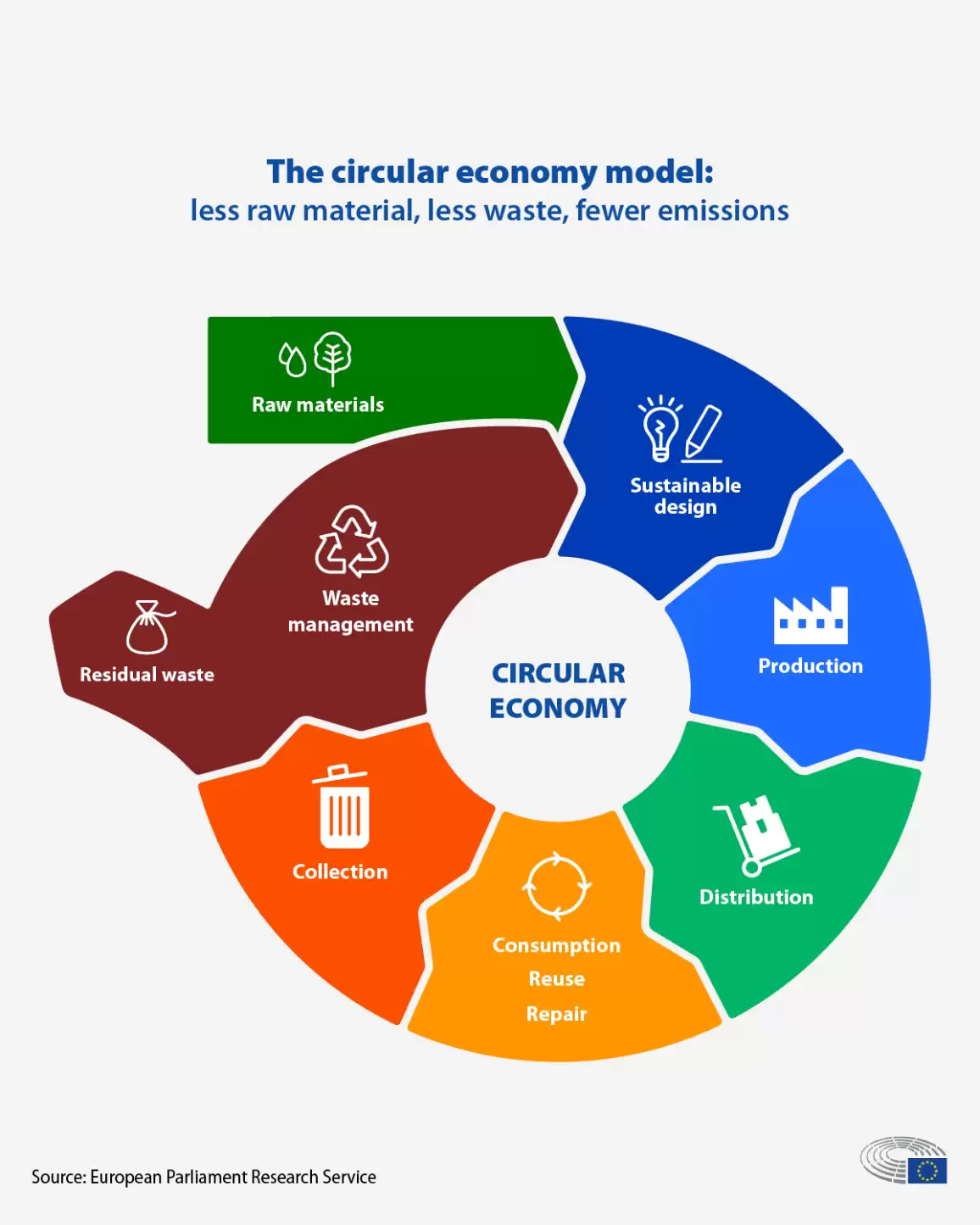Introduction
As we move into 2024, the sustainability landscape is evolving faster than ever. For businesses, investors, and professionals alike, staying ahead of the curve means keeping a close eye on the latest sustainability trends. In this article, we’ll delve into the top 10 sustainability trends that will shape the future of sustainable business practices, driving innovation, transparency, and responsibility across industries.
1. Sustainability Disclosure: Navigating New Regulations
Sustainability disclosure is becoming increasingly crucial as new regulations emerge globally. Companies are under more pressure than ever to refine their sustainability reporting practices to meet investor and stakeholder demands. In 2024, the emphasis on transparency and accountability in sustainability will reach new heights.
The adoption of standardized sustainability disclosure frameworks, such as the Task Force on Climate-related Financial Disclosures (TCFD) and the Global Reporting Initiative (GRI), will continue to rise. Companies that proactively align with these standards will stand out in the competitive market, attracting more environmentally-conscious investors. For sustainability professionals, staying updated on these regulatory changes is essential to ensure compliance and maintain a positive corporate reputation.
2. Biodiversity Impact: Protecting Ecosystems through Sustainable Business Practices
Biodiversity conservation is set to be a major focus in 2024 as the business world increasingly recognizes the importance of protecting ecosystems. The loss of biodiversity is not just an environmental issue; it also poses significant risks to global economies and human well-being. As a result, companies are beginning to incorporate biodiversity considerations into their sustainability strategies.
In 2024, businesses will be expected to assess and mitigate their impacts on biodiversity, particularly in their supply chains. Sustainability professionals will need to develop and implement strategies that protect and restore ecosystems, such as reforestation initiatives and sustainable land use practices. As biodiversity becomes a central component of sustainability, companies that lead in this area will enhance their reputation and resilience.

3. Circular Economy Models: Reducing Waste and Enhancing Resource Efficiency
The transition to a circular economy is one of the most significant sustainability trends of 2024. Companies are increasingly adopting circular economy models to reduce waste, enhance resource efficiency, and minimize their environmental impact. Unlike the traditional linear economy—based on a ‘take, make, dispose’ model—the circular economy focuses on keeping products and materials in use for as long as possible.
This shift is driving innovation in product design, manufacturing, and supply chain management. Businesses are exploring new models like product-as-a-service and extended producer responsibility to reduce waste and promote sustainability. For sustainability professionals, understanding and implementing circular economy principles will be essential to staying competitive in a rapidly changing market.

4. Sustainable Supply Chains: Transparency and Ethical Sourcing
Transparency and ethical sourcing are becoming critical components of sustainable supply chain management in 2024. Consumers and investors are increasingly holding companies accountable for the environmental and social impacts of their supply chains. This trend is driving businesses to enhance transparency, from sourcing raw materials to delivering finished products.
Sustainable supply chain management involves rigorous assessment of suppliers’ sustainability performance, reducing carbon emissions, and ensuring fair labor practices. Companies that excel in this area not only reduce their environmental footprint but also build trust with consumers and investors. For sustainability professionals, integrating sustainability criteria into supplier selection and management processes is key to achieving long-term success.
5. Renewable Energy Investments: Accelerating the Shift to Green Energy
Renewable energy investments are poised to grow significantly in 2024 as companies shift their energy portfolios to green sources. With the cost of renewable energy continuing to drop, businesses are increasingly seeing the financial and environmental benefits of transitioning to clean energy. Solar, wind, and other renewables are now more cost-competitive than fossil fuels, making them an attractive option for companies aiming to reduce their carbon footprints.
Investing in renewable energy not only supports sustainability goals but also enhances a company’s reputation as an environmentally responsible organization. Sustainability professionals should advocate for increased investment in renewables, integrating clean energy into their companies’ operations and long-term strategies.
6. Water Stewardship: Addressing Water Scarcity through Sustainable Practices
Water scarcity is an escalating global challenge, driving companies to implement stronger water stewardship practices in 2024. As climate change exacerbates water shortages, businesses, particularly those in water-intensive industries, must take proactive steps to manage their water usage and mitigate risks.
Effective water stewardship involves responsible management of water resources, reducing consumption, and ensuring that water use does not harm local communities or ecosystems. Companies will need to adopt water-efficient technologies, improve wastewater management, and engage in collaborative efforts to protect shared water resources. Sustainability professionals play a crucial role in prioritizing water stewardship to build resilience and safeguard business operations in a water-scarce world.
7. Social Equity: Promoting Fairness and Inclusion in Sustainability Strategies
Social equity is becoming a central pillar of sustainability strategies in 2024, as companies strive to ensure fair treatment for all stakeholders. This trend reflects a broader shift towards a more inclusive approach to sustainability, where social and environmental considerations are deeply intertwined.
Companies are increasingly focusing on addressing social inequalities, promoting diversity and inclusion, and ensuring that their operations benefit society as a whole. Prioritizing social equity not only enhances a company’s reputation but also creates more resilient and sustainable business models. Sustainability professionals must lead the charge in integrating social equity into their organizations’ sustainability strategies.
8. Stakeholder Engagement: Building Resilient Sustainable Futures through Collaboration
Effective stakeholder engagement is essential for building a resilient and sustainable future. In 2024, companies will need to engage more deeply with their stakeholders—including customers, employees, communities, and investors—to foster collaboration and drive positive change.
Stakeholder engagement is critical for building trust, enhancing transparency, and ensuring that sustainability initiatives are aligned with stakeholder needs and expectations. Companies that excel in stakeholder engagement will be better positioned to navigate challenges, seize opportunities, and create long-term value. Sustainability professionals should prioritize transparent communication and proactive engagement with all stakeholders to build strong, sustainable relationships.
9. Sustainable Finance: Aligning Investments with Sustainability Goals
Sustainable finance is gaining momentum as investors increasingly seek to align their portfolios with sustainability goals. ESG-linked financial products, such as green bonds and sustainability-linked loans, are becoming more popular, providing companies with the capital they need to pursue their sustainability initiatives.
In 2024, sustainable finance will continue to grow as more investors recognize the financial benefits of supporting sustainable businesses. Companies that embrace sustainable finance will have access to new funding opportunities, lower their cost of capital, and enhance their credibility with investors. Sustainability professionals should stay informed about the latest developments in sustainable finance and explore opportunities to leverage ESG-linked financial products to support their companies’ sustainability goals.
10. Digital Transformation: Leveraging Technology to Enhance Sustainability Practices
Digital transformation is revolutionizing sustainability practices, making them more effective and efficient. In 2024, technology-driven solutions will play a pivotal role in helping companies achieve their sustainability goals. From AI-powered analytics to blockchain for supply chain transparency, digital tools are enabling companies to monitor, manage, and optimize their sustainability performance in real-time.
Digital transformation also facilitates the integration of sustainability into core business processes, enabling companies to automate data collection, streamline reporting, and enhance decision-making. Sustainability professionals should embrace digital tools and technologies to drive innovation and improve the effectiveness of their sustainability initiatives.
Conclusion
The year 2024 is set to be a transformative year for sustainability, with these 10 key trends shaping the future of business practices. From refining sustainability disclosure to leveraging digital transformation, companies that stay ahead of these trends will be better positioned to navigate the challenges and opportunities in the evolving sustainability landscape.
For sustainability professionals, staying informed about these trends and proactively integrating them into their strategies will be crucial for driving positive change and creating long-term value for their organizations. As the world continues to shift towards a more sustainable future, the role of sustainability professionals will be more important than ever in guiding businesses towards responsible and resilient growth.
References
- ERM, 2024. 10 Sustainability Trends Likely to Shape the Business Landscape in 2024 and Beyond. [online] Available at: https://www.erm.com/insights/10-sustainability-trends-likely-to-shape-the-business-landscape-in-2024-and-beyond/
- MIT Sloan Management Review, 2024. Seven Sustainability Trends to Watch in 2024. [online] Available at: https://sloanreview.mit.edu/article/seven-sustainability-trends-to-watch-in-2024/
- Exploding Topics, 2024. Sustainability Trends. [online] Available at: https://explodingtopics.com/blog/sustainability-trends
- S&P Global, 2024. Key 2024 Sustainability Trends Driving the Year Ahead. [online] Available at: https://www.spglobal.com/esg/insights/featured/special-editorial/key-2024-sustainability-trends-driving-the-year-ahead
- MSCI, 2024. 2024 Sustainability & Climate Trends to Watch. [online] Available at: https://www.msci.com/research-and-insights/2024-sustainability-climate-trends-to-watch.
About GreenUP
Pioneering the Green Transition with Expertise and Innovation. With over 10 million I-RECs issued since 2019, we are Vietnam’s leaders in renewable energy certification. Our comprehensive suite of services, positions us uniquely as a one-stop solution for all your green and ESG needs. Experience unparalleled market access, competitive pricing, and strategic partnerships that drive not only cost savings but also significant value to your sustainability goals.







